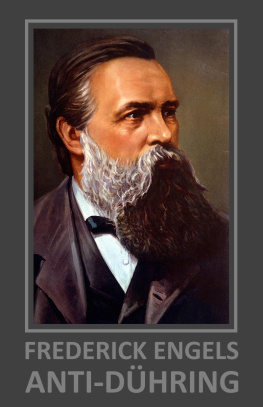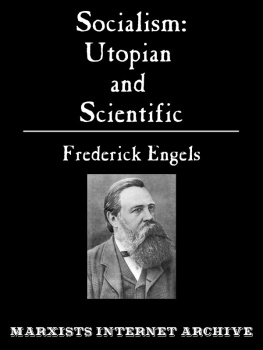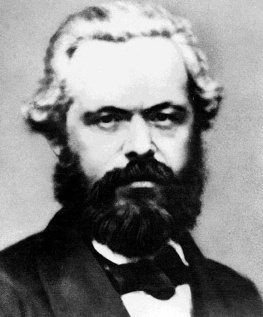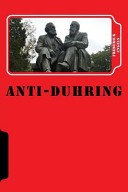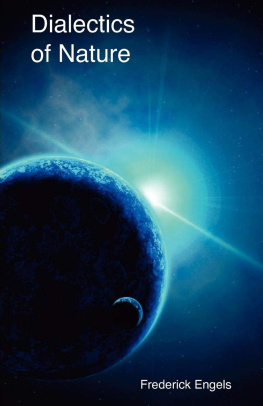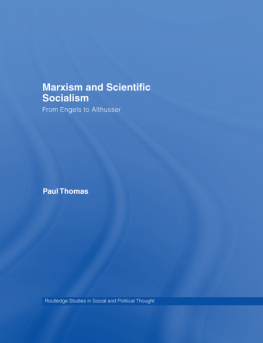Contents
Prefaces
Original Preface:
1885 Preface:
1894 Preface:
Introduction
Chapter 1:
Chapter 2:
Part I: Philosophy
Chapter 3:
Chapter 4:
Philosophy of Nature
Chapter 5:
Chapter 6:
Chapter 7:
Chapter 8:
Morality and Law
Chapter 9:
Chapter 10:
Chapter 11:
Dialectics
Chapter 12:
Chapter 13:
Chapter 14: .
Part II: Political Economy
Chapter 1:
Chapter 2:
Chapter 3:
Chapter 4:
Chapter 5:
Chapter 6:
Chapter 7:
Chapter 8:
Chapter 9:
Chapter 10:
Part III: Socialism
Chapter 1:
Chapter 2:
Chapter 3:
Chapter 4:
Chapter 5: .
Notes
.
Anti-Dhring
Frederick Engels
Herr Eugen Dhring's Revolution in Science
Written: September 1876 - June1878;
Published: in Vorwrts, Jan 3 1877-July 71878;
Published: as a book, Leipzig 1878;
Translated: by Emile Burns from 1894 edition;
Source: Frederick Engels, Anti-Dhring. HerrEugen Dhrings Revolution in Science, Progress Publishers, 1947;
Transcribed: meia@marx.org, August 1996;
Proofed and corrected: Mark Harris 2010.
Original HTML:
www.marxists.org/archive/marx/works/1877/anti-duhring/index.htm.
I London, June 11 1878
The following work is by no means the fruit of any "inner urge".On the contrary.
When three years ago Herr Dhring, as an adept and at the same time areformer of socialism, suddenly issued his challenge to his age, friends inGermany repeatedly urged on me their desire that I should subject this newsocialist theory to a critical examination in the central organ of the SocialDemocratic Party, at that time the Volksstaat. They thought thisabsolutely necessary if the occasion for sectarian divisions and confusionswere not once again to arise within the Party, which was still so young and hadbut just achieved definite unity.
Nevertheless it was a year before I could make up my mind to neglect otherwork and get my teeth into this sour apple. It was the kind of apple that, oncebitten into, had to be completely devoured; and it was not only very sour, butalso very large. The new socialist theory was presented as the ultimatepractical fruit of a new philosophical system. It was therefore necessary toexamine it in the context of this system, and in doing so to examine the systemitself; it was necessary to follow Herr Dhring into that vast territory inwhich he dealt with all things under the sun and with some others as well. Thatwas the origin of a series of articles which appeared in the LeipzigVorwrts, the successor of the Volksstaat, from the beginningof 1877 onwards and are here presented as a connected whole.
It was thus the nature of the object itself which forced the criticism to gointo such detail as is entirely out of proportion to the scientific content ofthis object, that is to say, of Dhring's writings. But there are also twoother considerations which may excuse this length of treatment. On the one handit gave me, in connection with the very diverse subjects to be touched on here,the opportunity of setting forth in a positive form my views on controversialissues which are today of quite general scientific or practical interest. Thishas been done in every single chapter, and although this work cannot in any wayaim at presenting another system as an alternative to Herr Dhring'ssystem, yet it is to be hoped that the reader will not fail toobserve the connection inherent in the various views which I have advanced. Ihave already had proof enough that in this respect my work has not beenentirely fruitless.
On the other hand, the system-creating Herr Dhring is by nomeans an isolated phenomenon in contemporary Germany. For some time now inGermany systems of cosmogony, of philosophy of nature in general, of politics,of economics, etc., have been springing up by the dozen overnight, likemushrooms. The most insignificant doctor philosophiae and even astudent will not go in for anything less than a complete system.Just as in the modern state it is presumed that every citizen is competent topass judgment on all the issues on which he is called to vote; and just as ineconomics it is assumed that every consumer is a connoisseur of all thecommodities which he has occasion to buy for his maintenance so similarassumptions are now to be made in science. Freedom of science is taken to meanthat people write on every subject which they have not studied, and put thisforward as the only strictly scientific method. Herr Dhring, however, is oneof the most characteristic types of this bumptious pseudo-science which inGermany nowadays is forcing its way to the front everywhere and is drowningeverything with its resounding sublime nonsense. Sublime nonsense inpoetry, in philosophy, in politics, in economics, in historiography, sublimenonsense in the lecture room and on the platform, sublime nonsense everywhere;sublime nonsense which lays claim to a superiority and depth of thoughtdistinguishing it from the simple, commonplace nonsense of other nations;sublime nonsense, the most characteristic mass product of Germany'sintellectual industry cheap but bad just like other German-madegoods, only that unfortunately it was not exhibited along with them atPhiladelphia. This is an infantile disease which marks, and isinseparable from, the incipient conversion of the German student to SocialDemocracy, but which our workers with their remarkably healthy nature willundoubtedly overcome.
It was not my fault that I had to follow Herr Dhring into realms where atbest I can only claim to be a dilettante. In such cases I have for the mostpart limited myself to putting forward the correct, undisputed facts inopposition to my adversary's false or distorted assertions. This applies tojurisprudence and in some instances also to natural science. In other cases ithas been a question of general views connected with the theory of naturalscience that is, a field where even the professional natural scientistis compelled to pass beyond his own speciality and encroach on neighbouringterritory territory on which he is therefore, as Herr Virchow hasadmitted, just as much a semi-initiate" as any one of us. I hope that inrespect of minor inexactitudes and clumsiness of expression, I shall be grantedthe same indulgence as is shown to another in this domain.
Just as I was completing this preface I received a publishers' notice,composed by Herr Dhring, of a new authoritative work of HerrDhring's: Neue Grundgesetze zur rationellen Physik und Chemie.Conscious as I am of the inadequacy of my knowledge of physics and chemistry, Inevertheless believe that I know my Herr Dhring, and therefore, without havingseen the work itself, think that I am entitled to say in advance that the lawsof physics and chemistry put forward in it will be worthy to take their place,by their erroneousness or platitudinousness, among the laws of economics, worldschematism, etc., which were discovered earlier by Herr Dhring and areexamined in this book of mine; and also that the rhigometer, or instrumentconstructed by Herr Dhring for measuring extremely low temperatures, willserve as a measure not of temperatures either high or low, but simply andsolely of the ignorant arrogance of Herr Dhring.
London,
June 11, 1878
II 1885 Preface
I had not expected that a new edition of this book would have tobe published. The subject matter of its criticism is now practically forgotten;the work itself was not only available to many thousands of readers in the formof a series of articles published in the Leipzig

